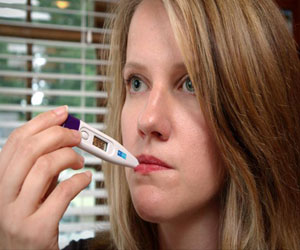A reduction by half in over diagnosing of malaria and prevention of wastage of drugs on patients who don't have the disease can be done with the help of interactive training programmes

The more effective training package lasted three days and was designed to change prescribing practices. In addition to the content of the basic package, which only provided conventional training on RDTs, malaria diagnosis and treatment, the comprehensive package had smaller groups and longer discussions about clinical guidelines, real-life scenarios and effective communication with patients. It was also more interactive, using card games, drama and problem solving exercises.
This research was carried out in response to calls from governments to provide evidence that helps to change the behaviour of clinicians, who often treat patients based on their signs and symptoms without testing their blood for the presence of malaria parasites. This often results in patients with fever being overdiagnosed with malaria and receiving expensive malaria treatment that they don't need.
The study's lead author, Dr Virginia Wiseman from the London School of Hygiene & Tropical Medicine, said: "If we are serious about improving the targeting of malaria medicines by using RDTs, then there needs to be a far greater focus on behaviour change. This study, the first of its kind in Cameroon, highlights that health workers not only need training to diagnose and treat malaria, but most of all need the confidence to put what they learn into practice and to communicate more effectively with patients about why they are tested and that fever is not always caused by malaria. Our results suggest that a good training programme designed to translate knowledge into practice could dramatically reduce overdiagnosis of malaria in Cameroon and prevent the wastage of valuable medicines."
The World Health Organization recommends that health workers test patients for malaria before prescribing antimalarial treatment, but for decades malaria has been diagnosed based on symptoms alone. Microscopy is a method that requires laboratory equipment and qualified staff, while rapid diagnostic tests are alternative, simple tools to diagnose malaria accurately which can help health workers in remote locations to prescribe the correct treatment.
Professor David Schellenberg, director of the ACT Consortium at the London School of Hygiene & Tropical Medicine, said: "This study shows that rapid diagnostic tests can take the guesswork out of diagnosis, which can improve the targeting of malaria treatment to those who really need it. We recognise that this is one study carried out in one setting, in one country, but it helps us to maximise the value of RDTs in different contexts such as the private sector or other countries. It also draws attention to the importance of understanding the non-malarial causes of fever. For example, meningitis or pneumonia are life-saving infections and require referral and additional treatment."
Advertisement
Source-Eurekalert













